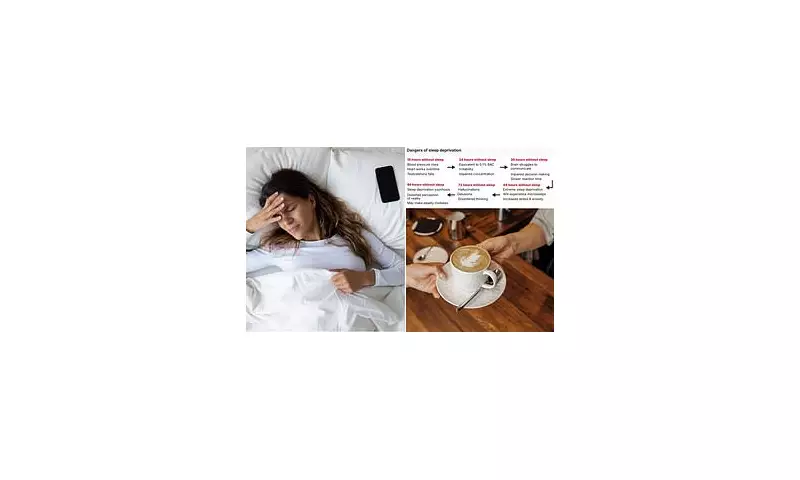
In a revelation that will have countless tired Brits sitting bolt upright in bed, a leading sleep therapist has exposed several common 'insomnia cures' that are actually making our sleepless nights more frequent.
Rather than offering a path to peaceful slumber, these well-intentioned habits are trapping people in a frustrating cycle of wakefulness. The expert warns that some of the most recommended strategies are fundamentally flawed.
The Top Sleep Saboteurs You're Probably Using
1. The Myth of Counting Sheep
For generations, counting fluffy farm animals has been the go-to solution for a racing mind. However, this monotonous task requires just enough mental focus to keep your brain engaged and alert, effectively preventing the drift into sleep rather than encouraging it.
2. Going to Bed Extremely Early
Logically, more time in bed should equal more sleep, right? Wrong. This tactic often leads to hours spent staring at the ceiling, which conditions your brain to associate the bed with anxiety and frustration, not rest.
3. Lying In To 'Catch Up'
While the weekend lie-in feels like a necessary reward, it severely disrupts your body's internal clock (circadian rhythm). This creates a social jetlag effect, making it incredibly difficult to fall asleep at a reasonable hour on Sunday night.
4. The Nightcap Illusion
That glass of wine might make you feel drowsy initially, but alcohol is a notorious sleep disruptor. It blocks crucial REM sleep and often causes you to wake up in the middle of the night as your body processes the toxins.
5. Clock-Watching Anxiety
Frantically checking the time after every toss and turn is a recipe for disaster. It fuels performance anxiety and mental arithmetic about how few hours you have left, sending stress levels—and alertness—soaring.
What To Do Instead For a Restful Night
The key to breaking the cycle, the expert suggests, is to stop trying to force sleep. If you haven't fallen asleep after 20 minutes, get up. Go to another room and do something calming under low light—read a physical book, listen to soft music—only returning to bed when you feel genuinely sleepy.
This method, known as stimulus control, helps reforge the powerful mental connection between your bed and sleep alone. Consistency with your wake-up time, even on weekends, is also non-negotiable for building a robust and reliable sleep rhythm.





